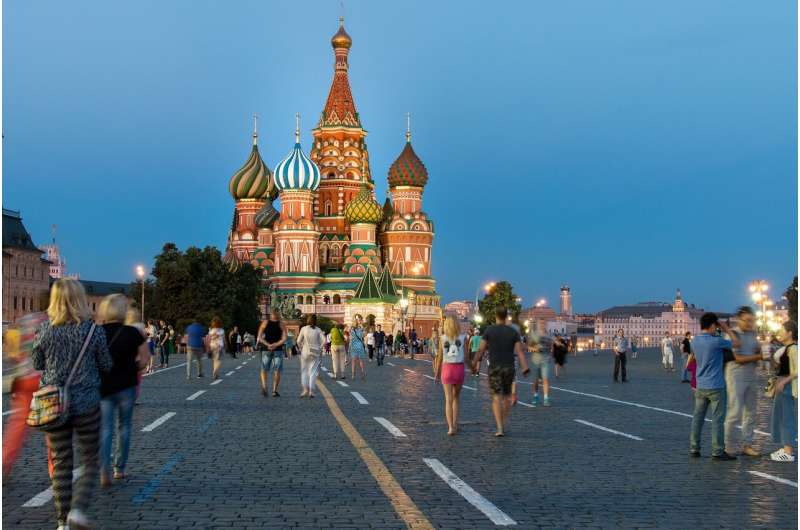
New coronavirus infections hit a pandemic high in Moscow on Monday, tripling in just weeks and forcing Russia’s capital to close its Euro fan zone and extend other curbs.
Some 9,056 new cases were recorded in the megapolis of 12 million in the past 24 hours, up from 3,000 two weeks ago and a new daily record since the COVID-19 pandemic began in early 2020, according to official statistics.
Faced with the spike, Moscow Mayor Sergei Sobyanin, who has been rolling out restrictions for nearly a week, said that the city would limit gatherings and close the Euro 2020 fan zone outside of the Luzhniki stadium.
“I didn’t want to do this, but we have to,” Sergei Sobyanin wrote on his website.
“Starting today, we will limit mass events to a maximum of 1,000 people.”
“We are temporarily stopping all mass entertainment events and we’ll also have to close dance halls and fan zones,” he wrote.
The move came a day after he warned that the city was facing a new wave of infections, likely because of new COVID variants.
“It’s tripling, there’s an enormous dynamic that we have not seen during the previous waves,” he said, adding that cases jumped from 3,000 to 7,000 in just days and predicting they would pass the 9,000 mark on Friday.
Over the past week, the mayor has introduced a series of new restrictions in an effort to contain the wave of infections, including declaring a “work-free” week, closing venues, and ordering mandatory vaccinations of people working in the service industry in the city.
Also on Friday, Sobyanin extended until June 29 several measures that were announced last weekend, like the closure of food halls in malls, zoos, playgrounds, and the closure of bars and restaurants between 11:00 pm and 6:00 am.
Curbs tightened in Euro host St Pete
Russia’s second city of Saint Petersburg, the country’s worst COVID hotspot after Moscow, is hosting seven Euro 2020 matches—including a quarter-final—and is expected to see thousands of football fans from Europe.
On Monday, Saint Petersburg also announced a tightening of restrictions, including no food sales in its fan zones.
The increase in cases in Russia comes as the country struggles to encourage Russians to get vaccinated, even though the country launched a mass campaign of free jabs in December and has developed and approved four vaccines—Sputnik V, EpiVacCorona, CoviVac and the one-dose Sputnik Light.
Since December only 19 million out of a national population of 146 million have received at least one dose of a vaccine, according to the Gogov website which tallies COVID figures from the regions and the media in the absence of a national statistics office.
In Moscow, just 1.8 million out of a population of 12 million, have gotten inoculated.
Russia overtook Britain on Thursday as the European country to record the most COVID deaths with 127,992.
Source: Read Full Article
